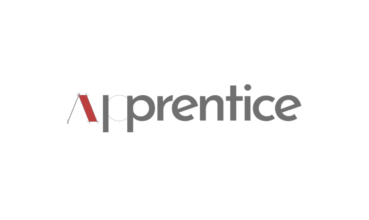His website says simply “Meet Dave. Not your typical landlord.” And speaking to him, he delivers on that promise. Meeting Dave Denis, you might not guess he’s built a real ...
From Coworking Collapse to Office Revival: How Johnny Yeh's Veery Is Transforming the Workplace Experience




When COVID-19 struck, Johnny Yeh watched as the coworking empire he’d helped build suddenly faced an existential threat. “Immediately, we saw a hit on freelancers using single desks and companies that wanted their people to work remotely for budgeting reasons,” Yeh recalls of his time at OnePiece Work, where he served as Director of Sales and Operations before co-founding Veery.
Rather than abandon the commercial real estate sector entirely, Yeh and Founder Vickey Li saw an opportunity in the chaos. “We really looked back to our roots with coworking space and the clients still working with us,” Yeh explains. “What we realized is they need an office manager. They want the space. They expect everything to work. They don’t really care how it works, they expect it works.”
This realization led to the creation of Veery, a company that’s reimagining office management for the post-pandemic era by focusing on one critical insight: many companies need high-quality office management services but don’t want to invest in full-time office managers.
Finding the Sweet Spot: Fractional Office Management
Veery has carved out a unique niche by essentially “fractionalizing” the office manager role, creating a service layer between office spaces and tenants. These services include comprehensive office management, design, branding, and amenity coordination—all at a fraction of the cost of hiring an in-house manager.
“I think it’s office management at a quarter of the cost and double the efficiency,” Yeh says, articulating the company’s value proposition.
The sweet spot for Veery’s services appears to be companies with 5-25 employees—typically startups, consultancies, or branch offices that need professional workspace solutions but don’t require or can’t justify a full-time office manager.
From Class B to Class A Experience
A key aspect of Veery’s model is helping companies create premium office experiences in more affordable spaces. “They’re moving into basically Class B buildings, but want the Class A experience,” explains Yeh, touching on a critical pain point in today’s commercial real estate landscape.
This approach is particularly relevant as workplaces strive to create what many industry experts refer to as a “commute-worthy experience”—spaces compelling enough to draw employees back from remote work arrangements. Yeh’s team has found that successful office spaces need strategic amenities and thoughtful design that makes coming to work purposeful and enjoyable.
When Companies Need Veery Most
Veery typically engages with clients who already have an office space but find it’s not working optimally. “They realize it’s not working for them for whatever reason,” Yeh notes. “Either the person they hired is incompetent to run it, or they simply don’t want to run it themselves.”
While Veery occasionally works with companies from the initial office setup stage, Yeh has observed that clients tend to value their services most after they’ve struggled to run it on their own. This firsthand experience helps clients better appreciate the professional management that Veery brings to the table.
Bringing Personality to Office Spaces
Veery’s approach goes beyond basic management to create spaces that reflect each company’s culture and values. “We spend a whole month just working with them side by side, sitting with their employees and talking to them, understanding their background and the company mission as well as the culture,” Yeh explains of their onboarding process.
For branch offices, this might mean ensuring the space matches the energy and quality of the headquarters, so employees don’t feel they’re working in “a poor house, but an equivalent of the HQ.”
Pet-friendly policies, feeding rooms, and personalized touches help create spaces employees genuinely want to work in. Yeh shared one memorable success story: “We were working on a weekend, and one of the staff came in just to grab something. He asked, ‘Did I walk into the wrong office?’ In that moment, we knew we were doing something right.”
Strategic Partnerships Fueling Growth
To connect with potential clients, Veery has developed strategic relationships with venture capital firms that refer their portfolio companies. “Our value proposition to them is that we’re going to help them smartly spend their investment,” Yeh notes, explaining how this arrangement benefits all parties.
Property managers have also proven to be valuable partners. Yeh explains their complementary relationship: “I sat down with some close partners we work with and said, ‘You focus on the building, I focus on their client and more internal matters. You focus on building maintenance, and I’ll focus on the people aspect.'”
Looking Ahead: Technology-Enhanced Service
Looking to the future, Veery aims to further enhance their service efficiency through technology. “We definitely want to push on the efficiency, on delivering that on-demand office manager experience,” Yeh says, mentioning plans to raise additional funding to develop their backend systems.
While Veery is exploring AI-powered solutions, Yeh recognizes that most clients still prefer the human touch: “As much as there’s a push for AI, I don’t think everybody’s ready for it. They still want that personal experience—’Johnny is coming into the office, he’s going to get stuff done.'”
As commercial real estate continues to evolve post-pandemic, Veery’s innovative approach to office management represents a potential solution to the challenges of creating engaging, efficient workspaces that justify the commute. By bridging the gap between affordable space and premium experience, Yeh and his team are helping companies transform conventional offices into thriving workplaces—one charging station, lighting adjustment, and personalized design element at a time.
Similar Articles
Explore similar articles from Our Team of Experts.


When Ross D. Eisenberg launched RDE Advisors in 2018, he saw an opportunity in Manhattan’s commercial real estate market that many had overlooked. After spending a decade at industry g...


“People want to live where they can go down to a restaurant, hit a convenience store, do the drugstore,” explains Steve Lorenzo, Principal at Lee & Associates Commercial Real...


“I love helping people. It’s such a significant part of what I do… I simply focus on delivering exceptional service, and clients are very appreciative. I truly enjoy this w...


The traditional method of finding a real estate agent has long been plagued by information asymmetry and misalignment of incentives. Redy is changing this dynamic by creating a marketplace w...




